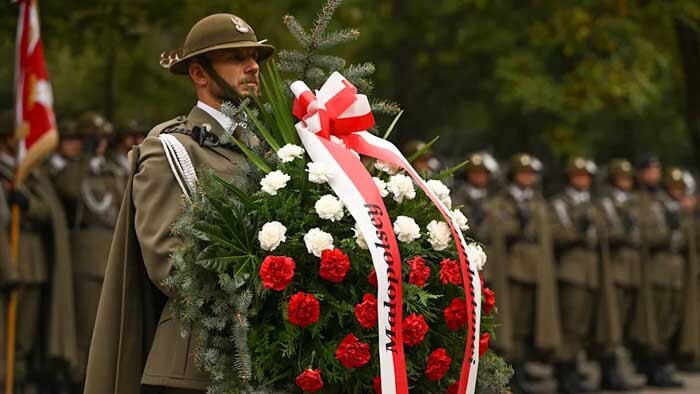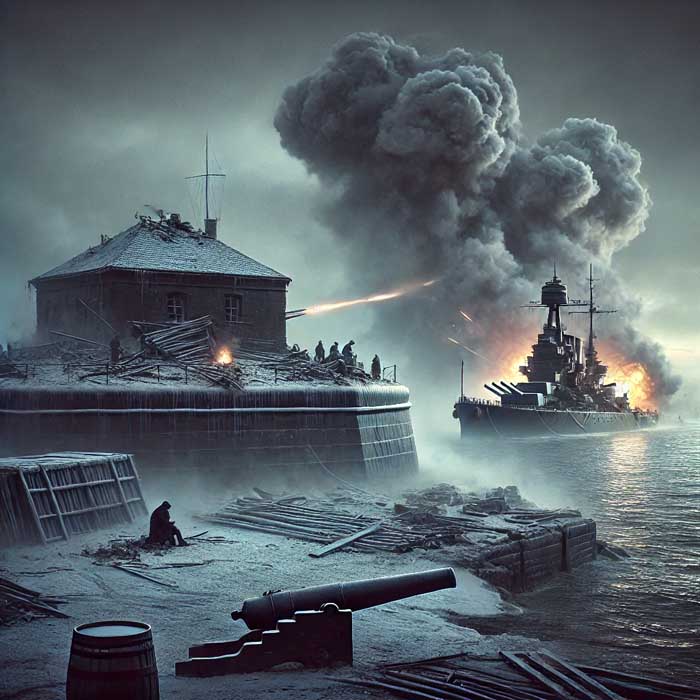
Posted by - News Staff![]() \
\
September 2, 2024 \
Filed in - World at War \
Nazi-Germany World At War III Polen Invasion \
3.4K views \ 0 reviews
DLNews World War III:
On a somber Sunday, the world paused to remember a pivotal moment in history, as Poland marked the 85th anniversary of the Nazi invasion that ignited the inferno of the Second World War. It was on September 1, 1939, that Adolf Hitler’s regime unleashed its forces upon Poland, starting a chain reaction that would engulf the globe in conflict, devastation, and tragedy.
In the early hours of that fateful day, a German battleship, the Schleswig-Holstein, fired the first shots at a Polish fortification on the Westerplatte, a small peninsula on the Baltic coast. This act of aggression signaled the beginning of a brutal occupation that would last for six harrowing years. Prime Minister Donald Tusk, standing solemnly at the very site where the first shots were fired, emphasized the relevance of the past in light of present-day conflicts. “The lessons taught by the Second World War are nothing abstract,” Tusk declared, his voice echoing across the historic landscape. “NATO members must dedicate themselves entirely to defending against the aggression that we are seeing on the battlefields in Ukraine.”

The commemoration was not limited to Westerplatte. In the town of Wieluń, where German bombers obliterated much of the civilian population in the war’s first air raid, President Andrzej Duda addressed the contentious issue of German reparations—a debate that continues to resonate deeply in Poland. “The war is not just a memory but a legacy,” Duda remarked, underscoring the lasting scars of the Nazi occupation.
As the solemn ceremonies unfolded, Minister of State for Culture Claudia Roth of Germany’s Green Party added a poignant reminder of the importance of historical accountability. “We must not forget the crimes of the German Wehrmacht and the suffering of Poland, even for our own sake,” Roth stated, advocating for an honest and unflinching confrontation with the shared history of the two nations.
The attack on Poland did not just mark the beginning of a global war; it shattered any remaining illusions of peace in Europe. Within days, Great Britain and France declared war on Germany, fulfilling their obligations to Poland. Yet, the tragedy deepened on September 17, 1939, when the Soviet Union, adhering to the secret protocols of the Hitler-Stalin Pact, invaded eastern Poland, carving up the nation between two brutal regimes.
The words spoken during these commemorations serve as a stark warning. “The war is coming from the east again,” Tusk ominously noted, drawing parallels between the invasion of 1939 and the contemporary conflict in Ukraine. The echoes of the past reverberate through today’s geopolitics, reminding the world of the fragile nature of peace and the ever-present threat of aggression.
As Poland commemorates this dark chapter in its history, the world is reminded that the horrors of the past must never be forgotten, lest they be repeated. The memory of the millions who perished during the Second World War endures as a solemn testament to the price of war, and a clarion call to defend the hard-won peace that is so easily shattered.

Desert Local News is an invitation-only, members-based publication built on fact-checked, non-biased journalism.
All articles are publicly visible and free to read, but participation is reserved for members—comments and discussion require an invitation to join.
We cover local, state, and world news with clarity and context, free from political agendas, outrage, or misinformation.
Comments